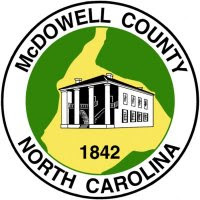skip to main |
skip to sidebar
 Winter is a good time to lime. Lime increases alkalinity. pH will stay fairly stable at higher alkalinities. Also, alkalinity reduces the toxicity of some chemicals in water. If you have to treat with copper sulfate this Spring or Summer, copper sulfate is less toxic at higher alkalinities.
Winter is a good time to lime. Lime increases alkalinity. pH will stay fairly stable at higher alkalinities. Also, alkalinity reduces the toxicity of some chemicals in water. If you have to treat with copper sulfate this Spring or Summer, copper sulfate is less toxic at higher alkalinities.
Treating your pond with salt also is recommended before stocking your pond with a new load of fish. Fish are stressed during harvest and transport. Salt acts to reduce this stress.
If your pond has little inflow and outflow, it may be necessary to break the ice. With a pond that has little inflow, most of the oxygen in water is resulting from contact with the air during winter. If the pond surface is completely frozen for an extended period, this can act as a barrier to replenishing the oxygen in the water. This is especially true if there is snow covering the ice. Most ponds have constantly flowing water so this is usually not a problem.
 As of July 1, 2005, anyone interested in stocking inland, public fishing waters with fish, mollusks, or crustaceans must obtain a stocking permit issued by the Wildlife Commission. The purpose of this permit is to protect native, or legally established aquatic species from the potentially damaging effects of unauthorized stockings. Fish stocked into public waters have the potential to escape into adjacent waters and create problems for existing aquatic communities by feeding on eggs, fry, or adults of existing fishes. They may compete for food and habitat. Stockings may also introduce diseases and parasites, and possibly interbreeding.
As of July 1, 2005, anyone interested in stocking inland, public fishing waters with fish, mollusks, or crustaceans must obtain a stocking permit issued by the Wildlife Commission. The purpose of this permit is to protect native, or legally established aquatic species from the potentially damaging effects of unauthorized stockings. Fish stocked into public waters have the potential to escape into adjacent waters and create problems for existing aquatic communities by feeding on eggs, fry, or adults of existing fishes. They may compete for food and habitat. Stockings may also introduce diseases and parasites, and possibly interbreeding.
The only waters not affected by this rule are private ponds, which by statute is defined as bodies of water arising within and lying wholly upon the lands of a single owner or group of joint owners or tenants in common, and from which fish cannot escape, and into which fish of legal size cannot enter from public waters at any time.
Since most ponds in western North Carolina are built by impounding streams, they are considered public waters. The term public does not imply that the general public has the right to fish these waters without landowner permission. It means that the waters flowing through the pond are contiguous with adjacent streams.
There is NO charge from this permit. You can find out how to apply by visiting www.ncwildlife.org/fishing/fish_stocking_permit.htm or by calling 919-707-0226. I can also help you getting an application for the stocking permit.
Basic Seafood Hazard Analysis Critical Control Points Training, February 16-18, Morehead City--This annual, two-and-a-half day workshop is designed for personnel in regulatory agencies, the seafood industry, particularly distributors and processors, and others who are required to have an FDA Seafood HACCP Plan in place for handling fresh seafood and seafood products. Cost is $150 per person which includes training, course books and certification fee. The link to the website, www.ncsu.edu/foodscience/workshops_training.htm
Preventing a Recall: Protecting Your Food Business, January 26, Morehead City--this workshop is designed for small food entrepreneurs and food producers who sell directly to the public, seafood processors and retailers, meat handlers producing and selling meat products, individuals interested in developing food recall plans to protect their businesses, and those who want to expand market outreach and are required to obtain liability insurance to enter new markets. For more information, www.ncagr.gov/markets/agbizmarketing.htm
North Carolina Aquaculture Development Conference, January 22-23, Atlantic Beach--An annual program that updates attendees on the status of aquaculture in North Carolina including research updates. The conference will also address topics on seafood safety, aquaculture effluent, niche markets, and more. For a detailed look at the agenda, www.ncaquaculture.org


